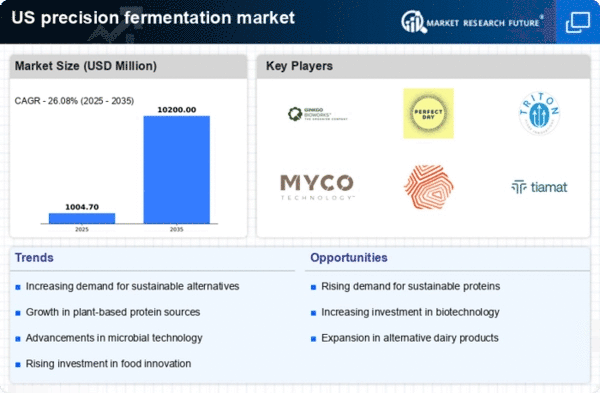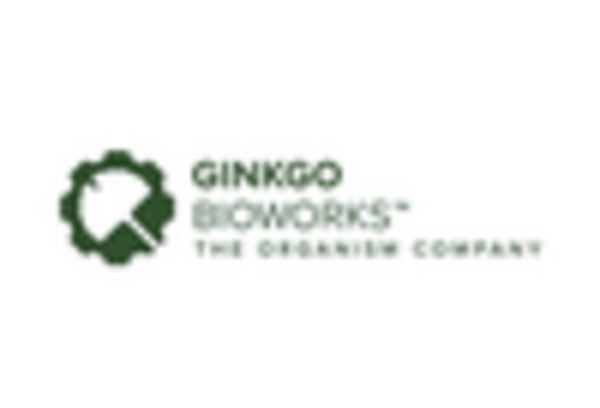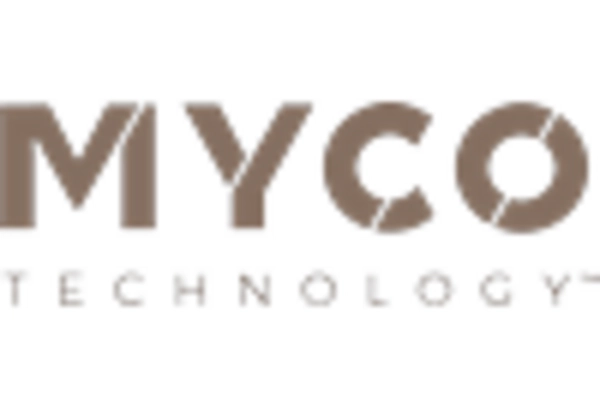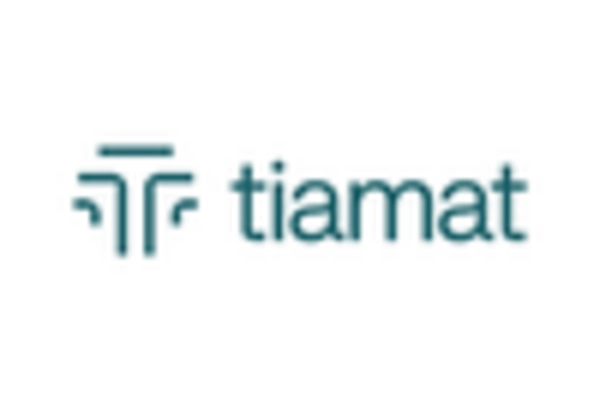Investment in Biotechnology
Investment in biotechnology is a critical driver for the precision fermentation market, as it fosters innovation and development of new fermentation processes. The US biotechnology sector has seen substantial growth, with investments reaching over $50 billion in recent years. This influx of capital enables companies to explore advanced fermentation techniques, leading to the production of high-value ingredients such as enzymes, amino acids, and vitamins. As the precision fermentation market continues to evolve, the integration of cutting-edge biotechnological advancements is likely to enhance production efficiency and product quality. Furthermore, increased funding for research initiatives may accelerate the commercialization of novel fermentation products, positioning the precision fermentation market as a key player in the future of food production.
Consumer Awareness and Education
Consumer awareness and education play a pivotal role in shaping the precision fermentation market. As consumers become more informed about the benefits of precision fermentation, including its potential to reduce environmental impact and improve food security, demand for products derived from this technology is likely to increase. Educational campaigns and transparency in labeling can significantly influence purchasing decisions, with studies indicating that up to 70% of consumers are willing to pay a premium for sustainably produced food. This heightened awareness encourages manufacturers to adopt precision fermentation methods, thereby expanding the market. As a result, the precision fermentation market is expected to witness a shift towards more sustainable practices, driven by informed consumer choices.
Rising Demand for Alternative Proteins
The precision fermentation market is experiencing a notable surge in demand for alternative proteins, driven by changing consumer preferences towards plant-based diets and sustainable food sources. As consumers become increasingly aware of the environmental impact of traditional animal agriculture, the market for precision fermentation is projected to grow significantly. In the US, the alternative protein sector is expected to reach approximately $10 billion by 2025, indicating a robust interest in innovative food technologies. This shift not only reflects a desire for healthier options but also aligns with broader sustainability goals. Consequently, companies in the precision fermentation market are likely to invest in research and development to create high-quality protein alternatives that meet consumer expectations, thereby enhancing their market position.
Collaboration Between Industry and Academia
Collaboration between industry and academia is emerging as a vital driver for the precision fermentation market. Partnerships between research institutions and companies facilitate the exchange of knowledge and resources, leading to innovative solutions in fermentation technology. In the US, numerous universities are actively engaged in research related to fermentation processes, contributing to advancements in microbial strains and production techniques. Such collaborations not only enhance the scientific understanding of fermentation but also accelerate the commercialization of new products. As these partnerships grow, the precision fermentation market is likely to benefit from a steady pipeline of innovations, ultimately leading to improved product offerings and market expansion.
Regulatory Support for Innovative Food Technologies
Regulatory support for innovative food technologies is increasingly influencing the precision fermentation market. The US government has been proactive in establishing frameworks that encourage the development and approval of novel food products derived from fermentation processes. This supportive regulatory environment is essential for fostering innovation and ensuring consumer safety. As regulations evolve to accommodate new technologies, companies in the precision fermentation market may find it easier to navigate the approval process for their products. This could lead to a more rapid introduction of innovative offerings to the market, thereby enhancing competition and driving growth within the precision fermentation sector.
















